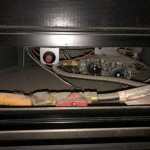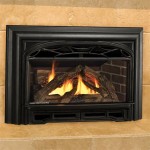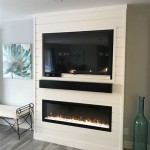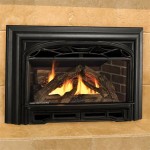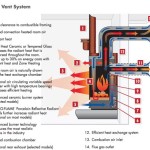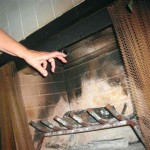Natural Gas and Wood Burning Fireplaces: A Comparison
Fireplaces are a beloved feature in many homes, offering warmth, ambiance, and a focal point for gatherings. The choice between natural gas and wood burning fireplaces hinges on various factors, from efficiency and environmental impact to convenience and aesthetics. Understanding the differences can help homeowners make an informed decision based on their specific needs and priorities.
Efficiency and Costs
Natural gas fireplaces are generally more efficient than their wood-burning counterparts. Gas fireplaces convert a greater percentage of fuel energy into heat, while wood-burning fireplaces lose significant amounts of heat through the chimney. This higher efficiency translates to lower fuel consumption and cost savings for gas fireplaces. Additionally, gas fireplaces often feature thermostats, allowing for precise temperature control and further contributing to their cost-effectiveness.
Wood-burning fireplaces, on the other hand, can be more expensive to operate, particularly in areas with high wood prices. The cost of wood can fluctuate significantly depending on factors such as seasonality and supply. Moreover, the heat output of wood-burning fireplaces can be unpredictable, requiring frequent adjustments and potentially leading to uneven heating.
Environmental Impact
The environmental impact of natural gas and wood burning fireplaces is a critical consideration. Natural gas, primarily composed of methane, is a fossil fuel that contributes to greenhouse gas emissions. While natural gas is often presented as a cleaner-burning alternative to coal, its extraction, processing, and transportation all have environmental implications.
Wood-burning fireplaces, while utilizing a renewable resource, emit significant quantities of particulate matter, carbon monoxide, and other pollutants. These emissions can negatively impact air quality and contribute to respiratory problems. Furthermore, the deforestation associated with wood harvesting can have detrimental effects on ecosystems and biodiversity.
Convenience and Maintenance
Natural gas fireplaces offer unparalleled convenience. They are relatively easy to operate, requiring only the flick of a switch or the turn of a knob to start a fire. Gas fireplaces also eliminate the need for wood storage, ash removal, and chimney cleaning, making them a more low-maintenance option.
Wood-burning fireplaces, while offering a more traditional and rustic experience, demand a higher level of effort. They require sourcing, storing, and transporting firewood, as well as regular cleaning of the fireplace and chimney. Additionally, wood-burning fireplaces can produce smoke and soot, which can require additional cleaning and maintenance.
Aesthetics and Ambiance
Both natural gas and wood-burning fireplaces offer distinct aesthetic appeal. The crackling flames and dancing smoke of a wood-burning fireplace create a romantic and traditional atmosphere. Gas fireplaces, while lacking the same level of visual dynamism, can be designed to mimic the look of a wood-burning fireplace, offering a more polished and modern aesthetic.
Ultimately, the choice between natural gas and wood burning fireplaces depends on individual preferences, priorities, and lifestyle. While natural gas fireplaces excel in efficiency, convenience, and low maintenance, wood-burning fireplaces provide a more traditional and authentic fire experience. Both options offer unique advantages and drawbacks, making it essential to carefully consider the factors that are most important to you when making your decision.

Can A Wood Burning Fireplace Be Converted To Gas The Flame Company

Gas Vs Wood Fireplaces A Guide Chimney Com

Gas Logs Vs Wood Burning Fireplaces Dc Area Fireplace Service

Benefits Of Replacing Your Wood Burning Fireplace With A Natural Gas Temprite Climate Solutions

Gas Vs Wood Fireplaces Vertical Chimney Care

Pros Cons Of Wood Gas Electric Fireplaces

Gas Vs Wood Fireplaces A Guide Chimney Com

Wood Fireplaces Gas Conversion That Counts
Gas Wood Pellet Electric Which Fireplace Or Stove Is Right For You Marshall S Inc

Benefits Of Natural Gas Fireplaces Nw Appliances
Related Posts

